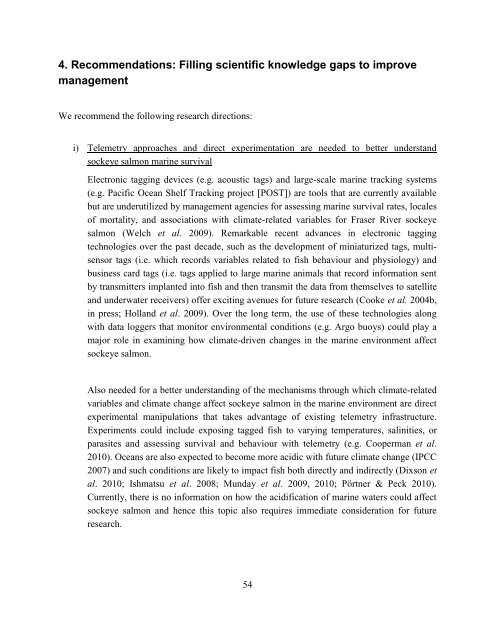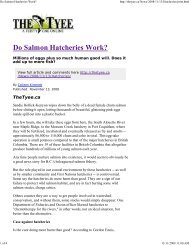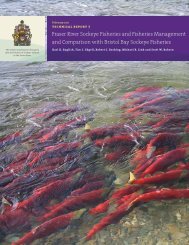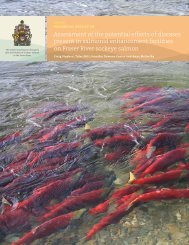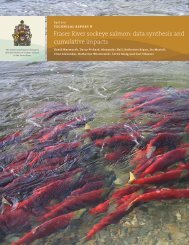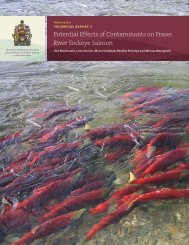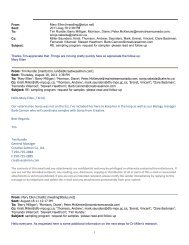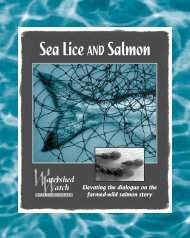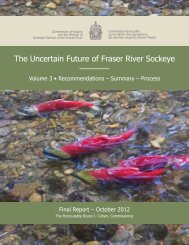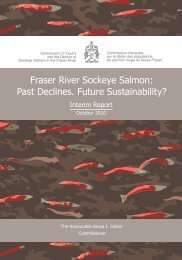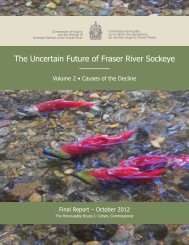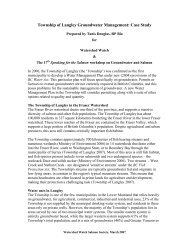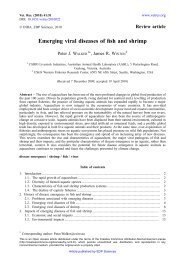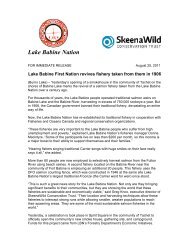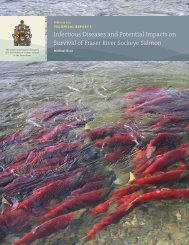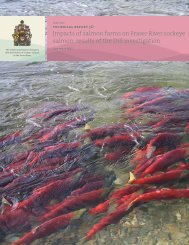Climate Change - Cohen Commission
Climate Change - Cohen Commission
Climate Change - Cohen Commission
You also want an ePaper? Increase the reach of your titles
YUMPU automatically turns print PDFs into web optimized ePapers that Google loves.
4. Recommendations: Filling scientific knowledge gaps to improve<br />
management<br />
We recommend the following research directions:<br />
i) Telemetry approaches and direct experimentation are needed to better understand<br />
sockeye salmon marine survival<br />
Electronic tagging devices (e.g. acoustic tags) and large-scale marine tracking systems<br />
(e.g. Pacific Ocean Shelf Tracking project [POST]) are tools that are currently available<br />
but are underutilized by management agencies for assessing marine survival rates, locales<br />
of mortality, and associations with climate-related variables for Fraser River sockeye<br />
salmon (Welch et al. 2009). Remarkable recent advances in electronic tagging<br />
technologies over the past decade, such as the development of miniaturized tags, multisensor<br />
tags (i.e. which records variables related to fish behaviour and physiology) and<br />
business card tags (i.e. tags applied to large marine animals that record information sent<br />
by transmitters implanted into fish and then transmit the data from themselves to satellite<br />
and underwater receivers) offer exciting avenues for future research (Cooke et al. 2004b,<br />
in press; Holland et al. 2009). Over the long term, the use of these technologies along<br />
with data loggers that monitor environmental conditions (e.g. Argo buoys) could play a<br />
major role in examining how climate-driven changes in the marine environment affect<br />
sockeye salmon.<br />
Also needed for a better understanding of the mechanisms through which climate-related<br />
variables and climate change affect sockeye salmon in the marine environment are direct<br />
experimental manipulations that takes advantage of existing telemetry infrastructure.<br />
Experiments could include exposing tagged fish to varying temperatures, salinities, or<br />
parasites and assessing survival and behaviour with telemetry (e.g. Cooperman et al.<br />
2010). Oceans are also expected to become more acidic with future climate change (IPCC<br />
2007) and such conditions are likely to impact fish both directly and indirectly (Dixson et<br />
al. 2010; Ishmatsu et al. 2008; Munday et al. 2009, 2010; Pörtner & Peck 2010).<br />
Currently, there is no information on how the acidification of marine waters could affect<br />
sockeye salmon and hence this topic also requires immediate consideration for future<br />
research.<br />
54


